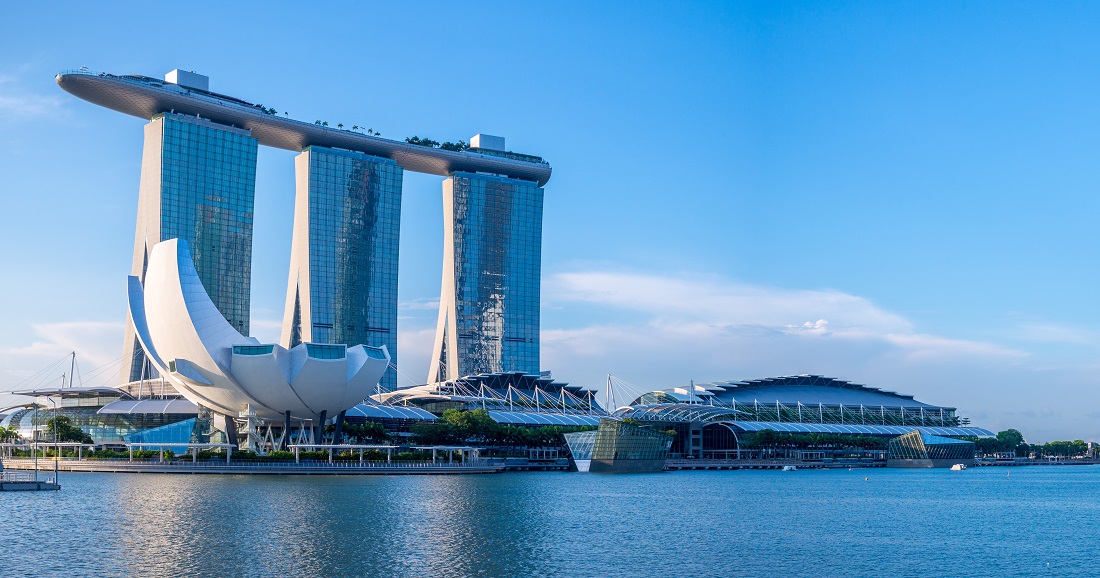Investors worldwide are getting worried ahead of the Federal Reserve's meeting because of the recent appearance of inflation statistics from Australia and monetary tightening in Singapore. Nearly US$3 trillion in global stock valuations vanished before the US benchmark index finished in the green zone, according to Bloomberg on Tuesday (1/25/2022). Consumer prices have pushed Australia's three-year bond rates to their highest level since April 2019. When inflation hit its most significant level for eight years, Singapore's Central Bank took action. This action resulted in the Singapore dollar strengthening.
Before the Fed's meeting on Wednesday, money market participants had expressed similar concerns about the current state of the economy. Interest rates will rise due to an announcement from the Federal Reserve Board. It is predicted that US Treasury and technology stock prices will plummet. "Investors have been overly sensitive in the last week, and recent events haven't helped ease market uncertainty about when and how much the Fed would raise interest rates. Even if the Federal Reserve is affecting everything, the market is still in a perilous moment, "Head of Research at K2 Asset Management in Melbourne, George Boubouras, stated. Even as US equity futures resumed their decline on the day, following Monday's dramatic swing and Asian stocks falling to their lowest level in 13 months, investors were still jittery. The value of US Treasuries grew in tandem with the Japanese yen, which attracted investors.
The Monetary Authority of Singapore (MAS) unexpected tightened the monetary policy, which usually conducts policy reviews in April and October twice a year. The tightening was done to prevent inflation from growing. Central banks will use FX as a primary policy tool to combat rising import costs and allow their currencies to appreciate against other currencies in the coming months. According to the Monetary Authority of Singapore (MAS), "This move is appropriate to guarantee medium-term price stability," the central bank said in a statement. It's also expected that the Reserve Bank of Australia will end its bond-buying program at its meeting on Tuesday. The Federal Reserve is considering raising interest rates this year for the first time. Since last year, the Federal Reserve has been in the spotlight, when it was expected to begin raising interest rates.
As a result, traders have considered the forecast of four rate increases and the signal for a balance sheet reduction, which is a trigger for dealing with volatility in the financial markets. RBCS senior economist and interest rate strategist Su-Lin Ong told Reuters, "The clear message from Asia today is that markets need to be prepared for global central banks to be active in the next two weeks. Hong Kong of New York Mellon As for Asia, Wee Khoon Chong said he was hopeful about keeping market fluctuations restrained. "The recent market volatility is, in my opinion, a typical reaction to the shift in the monetary policy cycle that we've seen. Slowly but steadily, Asian inflation is rising. Despite this, it remains modest in absolute terms. "Chong made this statement.
Japanese authorities are beginning to acknowledge that inflationary pressures are starting to build up in the country noted for its low inflation rate. The city-state of Singapore altered its monetary policy the next day as data indicated that core inflation increased at its quickest rate in nearly eight years. To preserve medium-term price stability, the MAS referred to its recent tightening measures as a preemptive shift toward an appreciating position in October 2021.
The Fed will reevaluate its position at its semi-annual policy meeting, which is slated for April. For the most part, economists anticipate that the MAS will tighten once more. Against the US dollar, the Singapore dollar rose to 1.3425, its highest level since October 2021. The prior prediction for economic growth in Singapore was for a 3.5% -5% increase. "Singapore's fiscal and monetary tightening will be double in 2022," said OCBC's Ling. Trade and services-related industries have spearheaded Singapore's economic recovery, which is expected to expand to domestic and travel-related sectors when restrictions on Covid-19 are eased. Eighty-eight per cent of Singapore's 5.5 million residents have been vaccinated against Covid-19. At least 55% of the population has received booster doses. Core inflation is predicted to rise from 1.0 per cent to 2.0 per cent this year to 2.0 per cent to 3.0 per cent next year, according to the Malaysian Monetary Authority (MAS). Headline inflation is expected to be between 2.5% and 3.5%, within the previously anticipated range.
(sources: Bisnis, Kontan, CNBC, Bloombergh)

